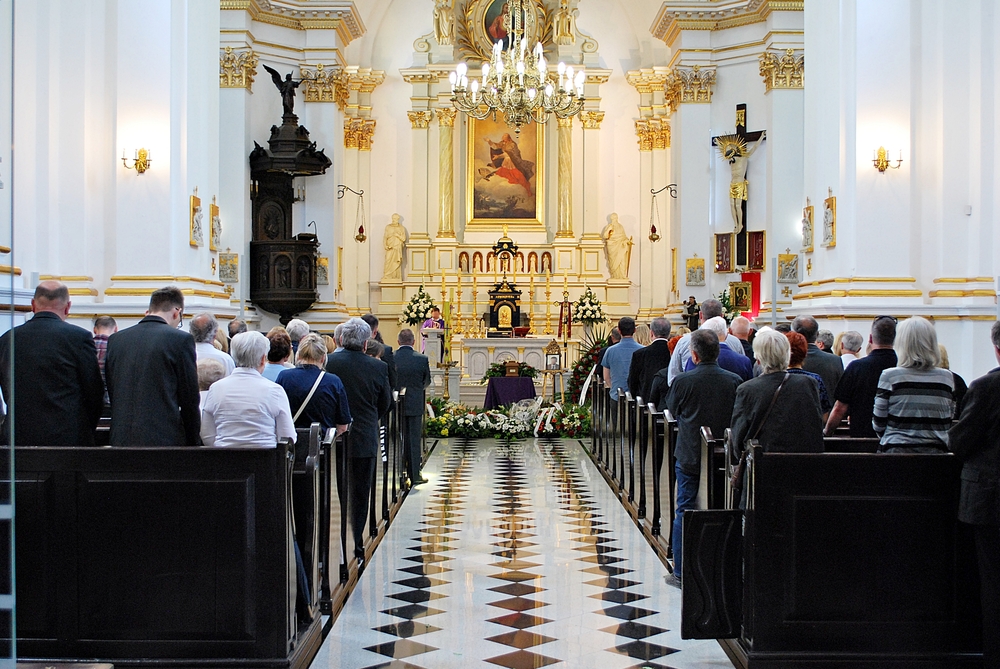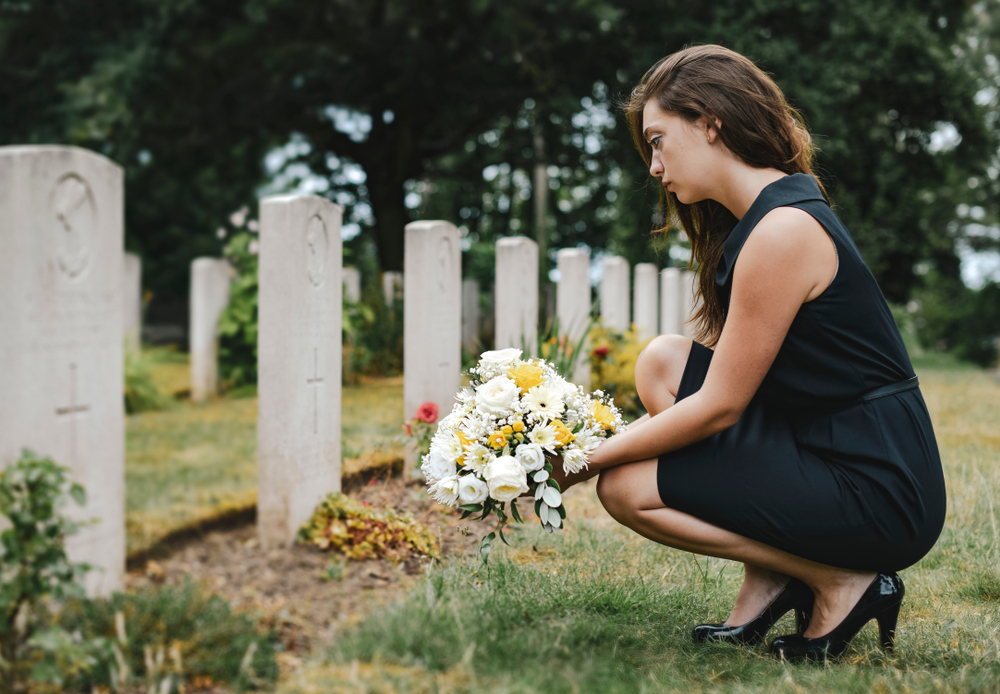Life Stages: Death
As people approach death at a hospital or their home, many Christians, including members of the Church of England, wish to confess their sins, ask for forgiveness, accept the Eucharist, and then receive “last rites.” After death, the body is typically shrouded and placed in a coffin with the arms resting on the sides.
Every Christian of the Anglican Church, whether or not he is a regular churchgoer, has the right to a funeral at his parish church and the right to a communion service at his funeral. Sometimes the deceased specifies the arrangement he or she wishes to have for his funeral in a will, and family members try to fulfill these wishes to the extent possible. Although the elaborateness of a funeral depends on the circumstances surrounding the death, the personality of the deceased, and the individual preferences of the bereaved family, feelings of sadness, gratitude, solemnity, and joy often intermingle.
Funeral directors are often entrusted with the funeral arrangements. As part of a national network, they advise people on funeral arrangements across the country and also coordinate with the parish church or the crematorium.
Ceremonies
Funeral services of the Church of England can be brief with only the immediate family or elaborate with music, special services, and a packed church. The priest or minister reads Bible verses that are believed to bring comfort to mourners. This may be followed by a communion service.
The committal is a particularly emotional moment that may take place at the graveside, crematorium, or church just before the cortege leaves for cremation. According to custom, the family gathers around the grave or coffin and commits the body to the earth by throwing a handful of earth into the grave. In a crematorium, a curtain comes down after the committal, and the coffin is moved out of view of the mourners.
In many country parishes, burials take place in churchyards. Nearly six out of ten burials take place at crematoriums, and there are special resting places in the parish churches and crematoriums where the ashes can be interred after a brief service along with a commemorative mark or record.
In Northern Ireland there is a traditional three-day wake where people come to the home of the deceased, kneel and pray before the coffin, express their condolences to the family, and then share stories about their life, often over a cup of tea or glass of whiskey. Mirrors are covered and clocks are stopped in the house during the wake. Scottish funerals are simple and quick, although in some areas there is sometimes an informal remembrance gathering after the burial that can resemble an Irish wake.
The Afterlife
According to traditional belief, the living have a duty to remember the dead. To commemorate them, epitaphs are carved on gravestones, the dying and their kin endow charities and encourage donations in the name of the deceased, and requiem Masses take place on specific days following death or annually.
The Christian belief in the immortality of the soul forms the basis of the British belief in the afterlife. The virtuous, it is believed, experience the presence of God in the kingdom of heaven, while the wicked are doomed to hell. While the Christian religion endorses the belief in Heaven and Hell, more and more people who were raised as Christians now consider themselves secular and have more personal views of death and the afterlife.
Copyright © 1993—2024 World Trade Press. All rights reserved.

 United Kingdom
United Kingdom 
